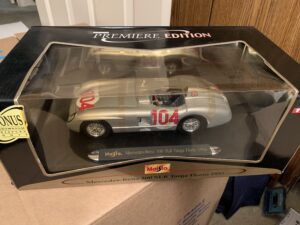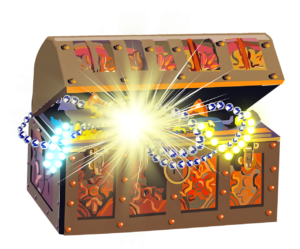

As my process of cleaning out continues, I’ve moved into harder areas. I thought the garage was bad, but can now confirm that the attic eaves on either side of the bonus room are worse…much worse. Years ago, we had a problem with squirrels invading attic spaces and “partying down.” I’m finding, and having to deal with, the detritus from that long-ago squirrel infestation. Not fun!
Interestingly, much of what I’m finding in the attic eaves moved with us from our first house thirty-five years ago. Boxes labeled “bonus room” are still sealed, covered in dust, waiting to be opened. Some of the contents of those boxes make me shake my head in disbelief. For example, a box full of empty boxes. What were we thinking? Did we really value empty boxes enough to move them from another house?
I’ve also found vinyl records. Obviously, 35 years in the hot and cold attic weren’t the ideal location to store them. Maybe these records were valued in the past, but not enough to place them in a friendlier environment.
To what do you assign value?
Following are a few thoughts on what we value:


Trash or Treasure
Much of what Jim saved doesn’t hold the same value for me that it did for him. In fact, he pretty much saved everything, lest he might need it again someday. For the most part, I am the opposite. I remember my daddy’s adage: “If you’re going to haul stuff in, you’ve got to haul stuff out.”
In cleanout mode, I’ve learned my grandchildren are intrigued by certain items. I want to make sure I avoid pushing my desire for forward motion to the point that it negates their curiosity and their grief process.
My granddaughter loved seeing my father’s World War II medals, ribbons, and pictures. Those I will always keep.
My oldest grandson treasures anything that was Bop’s. He doesn’t want me to sell his car. He likes to sit in it with me and pretend to drive. He is also enamored with Jim’s model car collection and doesn’t want me to sell any of it. I’m putting aside the cars Gibbs highly values. For him, they represent more than cool cars. They remind him of his Bop.
However, for me, the collection represents endless work to catalog and locate buyers. Model cars have no meaning for me, but for others, their value is great.

Things or Relationships
Our culture values the acquisition of things, specifically the latest, or most expensive version.
When our daughter was young, one of her friends had the newest, most popular, most expensive of everything, and, of course, our daughter wanted the same. I spent a lot of time explaining why we weren’t going to follow this pattern. Children who receive instant gratification for everything they want become adults who are impatient, and often, in debt.
The acquisition of things provides a momentary high, but there is always something newer or better waiting in the wings to attract your attention.
What would happen if we placed more value on relationships than things? Years from now, the relationships you cultivate will have more meaning than any item you own, including those languishing in your attic. Your adult children will not want those items when you’re gone, but they will treasure the time you spent with them in conversation and togetherness.

Possessions or Perspective
Value and perspective are intertwined. Often, what others treasure holds little meaning or value to us.
What if you obtained something of great value, an item you treasured above all else, but couldn’t display it for fear of theft? So, you lock that item away in a vault, only to be retrieved and viewed on special occasions. Perhaps, you kept the location of that vault secret from everyone. What happens to that treasure if God chooses to whisk you to heaven suddenly?
Ultimately, all that matters is your relationship with God and others. Life is fleeting. Perhaps now is a good time to adjust your perspective to treasure what holds eternal value.
“Your heart will always be where your treasure is” (Matthew 6:21 CEV).
©CandyArrington

Candy Arrington is an award-winning writer, blogger, and speaker. She often writes on tough topics with a focus on moving through, and beyond, difficult life circumstances. Candy has written hundreds of articles, stories, and devotions published by numerous outlets including: Inspiration.org, Arisedaily.com, CBN.com, Healthgrades.com, Care.com, Focus on the Family, NextAvenue.org, CountryLiving.com, and Writer’s Digest. Candy’s books include Life on Pause: Learning to Wait Well (Bold Vision Books), When Your Aging Parent Needs Care (Harvest House), and AFTERSHOCK: Help, Hope, and Healing in the Wake of Suicide (B&H Publishing Group).
To receive Candy’s blog, Forward Motion, via email, go to https://candyarrington.com/blog/ and scroll to the bottom of the page to sign up.

